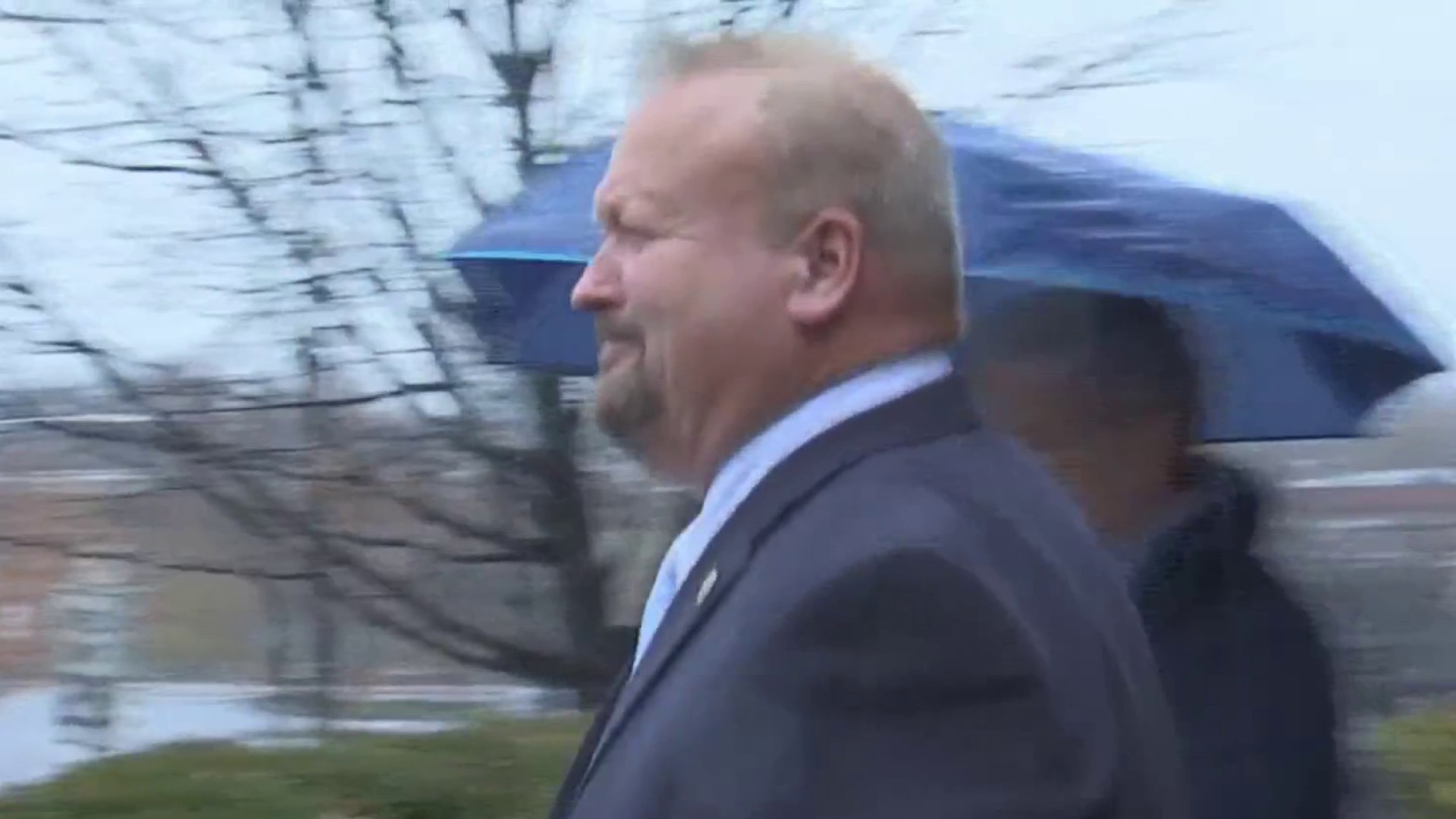Visibly frustrated D.C. Mayor Muriel Bowser lashed out Monday at a Superior Court judge who sent a 15-year-old carjacking suspect home instead of sending her to a secure facility pending trial on robbery charges.
According to court testimony, days after being sent home that girl and her half-sister were part of a group that allegedly called and then carjacked a rideshare driver last Thursday. Her half-sister died in a crash Thursday in D.C.’s Brentwood neighborhood shortly after the alleged carjacking.
“In my opinion, you've been arrested for the seventh time for carjacking, [secure detention] is where you belong,” Bowser told reporters Monday. “DYRS (Department of Youth Rehabilitation Services) does not make that decision. Judges do, and it's the judge's right to say I prefer shelter. And if I can't get a shelter, then I'm going to send this child home. The child was sent home. The child is now not with us.”
Juvenile court records are sealed. Bowser did not elaborate on the seven carjacking arrests. Through court testimony, the I-Team can confirm robbery charges from April and armed carjacking charges from the incident last week. The 15-year-old’s attorney told the judge the girl was not guilty and/or not involved in the carjacking.
We've got the news you need to know to start your day. Sign up for the First & 4Most morning newsletter — delivered to your inbox daily. >Sign up here.
In a hearing Friday, it was revealed following the April charges, D.C. Superior Court Judge Andrea Hertzfeld ordered the girl be held in a secure house awaiting trial. It is considered a secure placement, but not a jail like setting. Juveniles are still allowed to go to school and work but must stay at the secure home.
In court, Hertzfeld explained when a secure house placement couldn’t be found for the teen, she allowed her to go home to her parents with a GPS monitor.
Six days later the teen was allegedly involved in the recent carjacking, according to D.C. police. At the time, police said the battery on her GPS monitor was dead. A court supervision officer said she had not been reporting for supervision, nor was she regularly attending school.
Investigations
Investigations by the News4 I-Team
On Friday, Hertzfeld said she had repeatedly considered holding DYRS in contempt, adding that finding placement for girls has been a persistent problem.
“If we have children who are doing carjackings, it's probably not a single one that they've done or have been arrested for,” Bowser told reporters. “We need to make sure the children don't learn that they can do carjackings randomly and without punishment. A secured environment may actually help them get the services that they need.”

But it may not be that simple. The I-Team checked DYRS’ population count at the agency’s Youth Services Center, its most secure facility. As of Monday at 11:15 a.m., 92 children were housed there. DYRS says it has an 88-bed capacity.

As the agency deals with a surge in juvenile crime, D.C.’s fiscal year 2024 budget shows the agency’s bottom line was cut $2.3 million this year. The cut was recently reported by DC Crime Facts.
Reached Monday, a spokesperson for D.C. Courts told the I-Team, “Judges are prohibited from discussing any active cases – in both juvenile and adult court proceedings. The court follows the statutes and interprets the laws passed by the D.C. City Council every day. In pre-trial detention hearings, in consultation with the defense and prosecuting attorneys, judges take into account the safety and welfare of the public as well as those accused of committing crimes when making their determination. These findings include identifying the least restrictive pre-trial conditions while ensuring the safety of the public. “In juvenile matters, when a judge orders a juvenile to a D.C. Department of Youth and Rehabilitation Services’ Community-Based Residential Facilities (C.B.R.F) pending their trial, DYRS is not legally permitted to detain juveniles at the 24-hour secure Youth Services Center when bed space is not available at one of their Community-Based Residential Facilities. In such cases and scenarios, the court should immediately be made aware of the unavailable bed space so that a hearing can be scheduled that permits all sides to make their arguments and positions known in order to shape the rulings made by the court connected to pre-trial placement involving juveniles.”
Another hearing in the case is scheduled for Nov. 13.
In a statement, Sam Abed, the director of D.C.’s Department of Youth Rehabilitation Services told the I-Team, “While DYRS cannot comment on a specific youth due to confidentiality, it should be noted that DC Superior Court’s Court Social Services Division is responsible for the supervision of youth pre-trial. Any loss of life is deeply tragic; this is certainly true when a child is killed. We must do everything we can to ensure that our youth live, and that includes giving Courts the ability to consider risks mitigating against the safety and the corresponding safety of the public; for youth who commit a violent crime or a dangerous crime, a provision of Mayor Bowser’s proposed Safer Stronger Amendment Act of 2023. We renew our ask for the passage of this critical provision because no group is at higher risk of harm than those young people engaging in the most risky and dangerous criminal activity.”
News4 sends breaking news stories by email. Go here to sign up to get breaking news alerts in your inbox.



